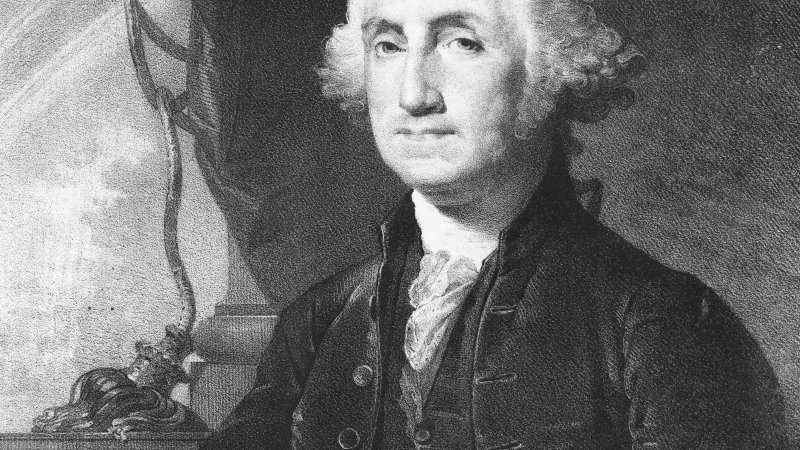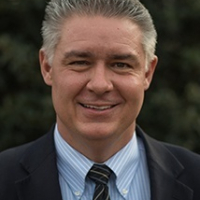Three Reasons Why Knowledge of Classical and Christian Literature Is Still a Prerequisite for Restorative Leadership

Have you ever wondered if people living in a “golden age” knew that it was golden? Did the people living a Florence around 1500 realize that five of the 20 greatest artists of all time were living in their city at the time? Did Athenian in the 400s BC realize that a number of the greatest playwrights and philosophers in history were rubbing shoulders with them in the market? My guess is that golden ages pass with most people thinking about how to make ends meet and others complaining about taxes.
Every age, whether golden, silver, bronze, or iron, longs for leadership. This sort of leadership really has two aspects—deeds and words. General Washington first led with deeds of humility and virtue, but he finally led with words. His Farewell Address, which has gotten more attention because of the musical Hamilton, is one of the most beautiful and important speeches of American and world history. Pericles led Athens in war, but he is remembered because he put the ideals of Athens on display in his great Funeral Oration.
We long for powerful, virtuous leaders who can lead our countries and communities through great trials to places of justice, peace, and restoration. How can we do that? One blog post, of course, cannot provide all that one needs to foster this sort of leader. Much has to happen that involves the work of families, churches, and communities. This post is about providing these sorts of potential leaders with a vocabulary. The best way to give leaders the right words, the right tone, and the right cadence to lead is by giving them a classical and Christian education with a strong background in the Scriptures and the Great Books.
- The Power of Mighty Words Comes from Connection to Ideas, Ideals, and a God that Lives Outside of the Circumstances of our Day
Leaders cannot, must not, look only at the circumstances of their day. They must find the right words to provide a vision of a just future. They have to point people to ideas and ideals that are beyond current circumstance. Because of the recent dominance of America and the Western world, the vocabulary of “Mighty Words, Ideas, Ideals” come from the classical and Christian world. This can be seen in the biblical words and phrases of Martin Luther King Jr. and in the even the concepts for fairness and human rights employed by leaders like Gandhi.
As leaders communicate, the cadence and tone of their words are as important as quotations. King, in the spirit of African American sermons, borrows a lot of language directly from Scripture. Lincoln does this as well, but even when he is not quoting Scripture, he is borrowing the cadences of the Bible. “With malice toward none, with charity for all,” is the opening phrase of Lincoln’s Second Inaugural Address. He is pointing to the biblical ideal of forgiveness and mercy as the Great Civil War winds down.
Sadly, and ironically, the secular world has borrowed powerful biblical words and ideas to foster their actions and leadership. Justice is probably the most poignant current example. This is both sad and ironic because the secular philosophy does not provide a stable foundation for real justice. Why should people treat others justly if there is no God and no Day of Judgment? What is justice and how can one find a just way to deal with current or past wrongs? The Scriptures provide answers to all these questions; secular philosophy does not, but the words and concepts that secularists borrow from the Christian faith still have powerful resonance in the hearts and minds of people.
- The Language of Mighty Words and Ideas in our World is Classical and Christian
One can usually tell when totalitarian dictators are going to do something horrific to their own people because they shut down the Internet in their country before they do it. They do this because they are afraid of the condemnation that will fall on them when the videos of their atrocities are posted. They will be condemned by Christians and secularists alike, but they will be condemned by people using Christian standards of fair treatment, righteousness, and equity. Interestingly, this is the opposite of the Romans. When they crushed people, they wanted everyone to know what happened. In our world, however, the classical virtue of strength has been governed by the Christian virtues. Strength should be used to serve.
For the foreseeable future the language of powerful restoration is and will be the language of the classical and Christian world. This is true because of the influence of the US and the West in connecting the world. This, of course, does not mean that Western expansion and colonialism was just. Often, it was terribly unjust. Interestingly, Western colonies from the US (which was originally a collection of British colonies) to Asian countries to African states use the language and concepts of the West to make their plea for freedom. When King took of the language of Jefferson in the Declaration of Independence (“All men are created equal”), he is saying that the US has failed to follow through on its promise.
- The Language of Classical and Christian Vocabulary has the Power to Lift our Eyes above the Troubles of our Time
This is where the rubber meets the road in leadership. Can a leader lift the eyes of the people to see what cannot be seen? Jesus did this with Martha after the death of Lazarus, saying, “I am the resurrection and the life.” All real leadership is an echo of His perfect leadership. When Churchill stands by a heap of rubble in the East End of London with his cigar holding out the V for Victory symbol, he is raising the eyes of his people to a time when, through terrible persistence and sacrifice, they will find justice and peace. This action is perfected when it is married to the right words that echo the Scriptures and classical tradition. He hits this note when he says,
But if we fail, then the whole world, including the United States, including all that we have known and cared for, will sink into the abyss of a new Dark Age made more sinister, and perhaps more protracted, by the lights of perverted science. Let us therefore brace ourselves to our duties, and so bear ourselves that, if the British Empire and its Commonwealth last for a thousand years, men will still say, “This was their finest hour.”
With these words he prepared his people for the needed great sacrifice they would all have to make, but that sacrifice was to be made to reach a glorious and just end—a world where Nazism was defeated and where the free peoples of the world could enjoy liberty. To provide this vision we must give them a vocabulary. That vocabulary comes from the Great Books and from the Bible.







